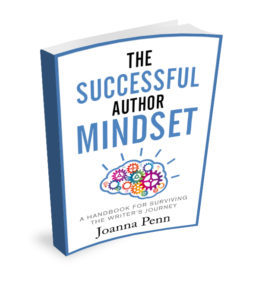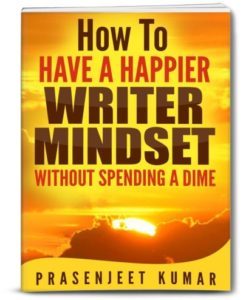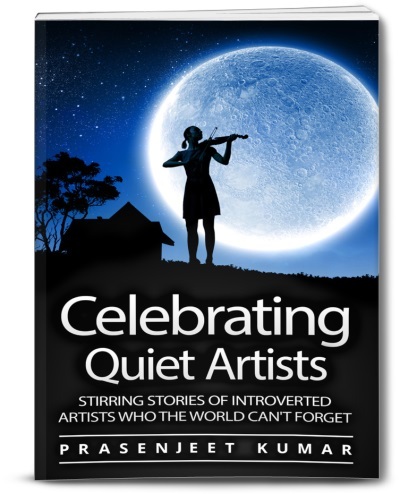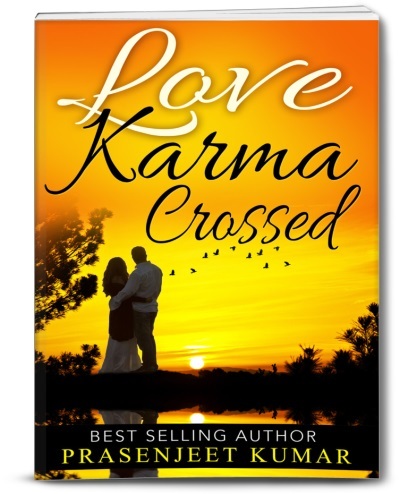Prasenjeet Kumar's Blog, page 2
February 25, 2017
Payoneer: A brand new way to reclaim your royalties from CreateSpace and non-US territories on Kindle

Image courtesy of Vichaya Kiatying-Angsulee at FreeDigitalPhotos.net
If like me, you too live outside North America or Europe, you would know of the frustration in getting your hard earned royalties for books published through KDP or CreateSpace in your bank account.
I had been facing this problem for the past 3 years, and no amount of hand-wringing was able to solve it. The problem is that Amazon directly deposits royalties into my bank account in India for sales made in the US and in India, ONLY. For all other territories, I would be paid via cheque, which would take months to reach me via snail mail and months to get credited into my account. And that too only after crossing a certain threshold, which was impossible to meet in quite a few territories.
So, to get paid for my UK sales, I had to cross 100 GBP. For Germany, it would be 100 Euros. And so on for France, Italy, Spain, Netherlands, Mexico, Japan, and Brazil.
My books being in English, they would meet the UK threshold quite easily quite often. But God help me in Brazil, Mexico or Japan. Most of the time my sales in such non-English speaking countries would be so tiny that I never got paid.
The same was the case with CreateSpace, for my paperback sales. I needed to cross 100 USD, 100 GBP, 100 Euros or 100 whatever in order to get paid anything.
This meant I had to wait for years to receive my first cheque from such “fragmented markets.” I was obviously making sales but not enough to get paid.
I may as well make my books FREE in all such markets!
But isn’t indie-publishing a global business, where you can easily publish your book with a click of a mouse to 200 countries worldwide? So technically, every sale irrespective of any country should make you happy provided the royalty you earned trickled down to you sometime soon.
Well, it is obviously not so easy. Aggregators like Draft2Digital or Smashwords can help you with all- other eBook publishers like Apple, Kobo or Barnes and Noble but not with Amazon or CreateSpace.
For years, therefore, I had stopped taking my non-US sales seriously. I mean I’m not saying that the feeling wasn’t great when someone considered your book worthy enough to buy in Australia or Spain or Canada but I knew I was never going to be paid. So why celebrate?
Getting paid by cheque wasn’t the only problem. Cheques took a month to reach me and then another few months to get encashed (another problem with my bank). Occasionally, cheques got lost and I had to complain to CreateSpace after two months to cancel them and send a new one, which would take another two months to get encashed. So sometimes payments were delayed for over six months.
And to those of you living in North America or in Europe and complaining about falling sales; think how lucky you guys really are for getting paid every month for sales made anywhere in the world.
Skimming through many Kindle Board discussion forums, I realised I was not alone. Many authors living in Australia, Asia, Africa or in South America complained of the same problem. Some authors were so frustrated that they didn’t even hesitate calling CreateSpace a company designed for ripping authors.
I hoped Amazon and CreateSpace would improve their systems and aggregate sales across territories and implored them to do so but to no avail.
 And this is when I accidentally discovered Payoneer, a global payment solution much like PayPal. When you open an account with Payoneer, what you basically get is a virtual US, UK and a European bank account.
And this is when I accidentally discovered Payoneer, a global payment solution much like PayPal. When you open an account with Payoneer, what you basically get is a virtual US, UK and a European bank account.
To access this virtual bank account, you need to log in to your Payoneer account, go to receive and click on Global Payments Service. You’ll then find your bank account details in USD, GBP and EUR.
Enter this virtual account details into your dashboards for KDP and Createspace and you’re done.
Here are two articles that can help you get started: KDP and Createspace.
Remember, when opening an account with Payoneer, you’ll have to fill in your bank details. i.e. your account number and IBAN/Routing number/SWIFT/IFSC Code or whatever you call in your country. You can easily find this information in your cheque book. Just look at any cheque you use for payment, and you should find the information printed right there. Do not do a google search for locating this code as you may be led to sites that may give you inaccurate information.
Make sure you fill in your bank details correctly. Changing details later is a real pain in the neck. For security reasons, Payoneer does not display your bank account details. So if you need to change anything, you’ll need to contact their customer care (which is admittedly pretty slow to respond).
I made the mistake of entering the wrong IFSC code. I contacted Payoneer via e-mail asking them to correct it and received no reply. I then contacted them via phone and they asked me to send a scanned copy of a void cheque (take any cheque, cross it out and write VOID in big letters). Here is an example.
I took a picture of the void cheque using my mobile phone’s camera, downloaded the image and e-mailed it to them. The photo of the cheque must also display your name and your account details. Anyways, it took them nearly a week to correct all the details.
After that, payments have been smooth. I have suddenly managed to receive all my money stuck on CreateSpace and Kindle for the last three years.
So far, I’ve not had any problems (keeping fingers crossed!) but I’ve heard authors whose payments were rejected by Payoneer “by mistake.” These matters were sorted out by contacting both Amazon and Payoneer. See this discussion here.
In the end, I would say that Payoneer may not be a perfect solution to the problem but still a solution that is worth a try.
Do let me know if you do take the plunge.
Wish you the best of luck,
Prasenjeet
The post Payoneer: A brand new way to reclaim your royalties from CreateSpace and non-US territories on Kindle appeared first on Publish With Prasen.
January 22, 2017
The Compound Effect in Your Writing Career Revisited

Image Courtesy of phanlop88/FreeDigitalPhotos.net
“Dream as if you’ll live forever, live as if you’ll die today.”
–James Dean
I originally wrote this blog post in 2014 but now I’m tailoring it for 2017 and the lessons I’ve learnt in these many years.
It is easy to get overwhelmed. You hear of authors making a six-figure income while you struggle to make even a few sales. Growing a six-figure business seems impossible. It is no wonder many authors give up within just a few years of the start of their writing careers.
But is it really that hard?
Not if you understand the compound effect.
A few years ago, I stumbled across a very inspiring book that boosted immensely my self-confidence and belief in myself. The name of the book is The Compound Effect by Darren Hardy.
Darren asks you to think of the compound effect in the following way:
Smart, small choices + consistency + time= Massive Results
As per this book, a few years might be a very small amount of time to look at results.
In life, there is no such thing as a get-rich-quick scheme. An “overnight success” actually takes years to achieve. So just keep taking simple, small steps every day and with time you will achieve the intended results.
According to Darren Hardy, the Compound Effect is always at work.
You can either make it work for you or it will work against you.
He gives the example of three friends. One friend tries to improve himself every day. He spends time with his wife, walks for half an hour, cuts 125 calories less in his diet and reads motivational books. Every day.
The second friend does nothing and is a little bitter about life. He whines and complains all the while.
The third friend rarely exercises, spends enormous amount of hours watching TV, takes his wife for granted and has a cookie and beer to enjoy life. Every day.
After 2 and a half years the result was:
The third friend is obese, has terrible health problems and loses his job and wife.
The second friend remains the same but is now bitterer than before.
The first friend remains slim and trim, has a happy relationship with his wife and gets a job promotion.
Do you see the compound effect in action?
It is the small things we do in life that make the biggest of differences. You don’t become obese overnight nor do you lose your wealth instantly. It is all a compound effect of bad decisions taken almost every day over a considerable period.
On the converse, you don’t become rich or healthy overnight. That is also a result of smart, small choices made almost every day over a considerable period. So your biggest challenge is to remain consistent. It is also very important to adopt good habits and to get rid of bad ones.
I have already seen the compound effect in action in health, so I assume it shouldn’t be any different when it comes to your writing career.
Think of it this way:
1,000 words x 30 days= 30,000 words (one book) which translates to 12 books in a year.
I assume you won’t be writing all the time. Some of the days you would be stopped by life events and the other days because you are editing, publishing, marketing or learning. But still writing 6 books in a year this way may not be so difficult.
If you keep writing 6 books in a year for ten years, it would be 60 books. So in a decade, you would have written over 50 books. And think of those 50 books occupying shelf space on every retailer site like Amazon, Kobo, Barnes and Nobles, Google Play, iBooks, etc.
I won’t be discussing exclusivity here. But in a nutshell, I believe exclusivity is only good in the short run (at the most in your first year), and after that you should be building your career on every platform.
The more books you write, the better writer you become
The more you learn about your business, the better business person you become which increases your efficiency both in terms of costs and time.
Similarly, the more books you publish, more would be the chances of you being discovered.
There is even a compound effect on your fan base. One reader may like one of your books and may tell ten of her friends. Those ten may tell a few more and so on and so forth.
Sure a momentum based on just word-of-mouth would take time to build up. So it may be years before you see any noticeable traction. And even then you will never know whether someone bought your book because of word-of-mouth, or because he found you after a keyword search. So when you notice just one sale, say on Google Play in Burundi, there is no way to know whether it was on account of word of mouth or what.
I know it doesn’t sound logical that such trivial results can lead to huge payoffs with time. But that is the power of the compound effect. So for God’s sake, don’t get tripped by the simplicity of the compound effect.
So the most important thing is to be consistent which brings us back to the question why you want to do this and what do you love about your profession.
Your “why” will ensure that you remain consistent.
“Happiness is not having what you want. It is appreciating what you have.”
–Unknown
[This post is an excerpt from my latest book “How to Have a Happier Writer Mindset WITHOUT SPENDING A DIME which is available on all book retailers in both paperback and e-book format. Click here to find out more.]
The post The Compound Effect in Your Writing Career Revisited appeared first on Publish With Prasen.
December 18, 2016
Be A Happy Author Before Becoming A Best-selling One
Dear Reader,
I hope you are doing well.
I am happy to announce that my latest book “How to Have a Happier Writer Mindset WITHOUT SPENDING A DIME” (the fourth book in the “Self-publishing WITHOUT SPENDING A DIME” series of books) is now out on Amazon, Nook, Kobo, iTunes, Google Play and other e-Book platforms. The paperback version too should be out soon.
The book results from my intense interaction with many writers who have told me how self-doubt, lack of sales, rejections (by traditional publishers and literary agents), “workshopping,” sales addiction and the feeling readers don’t care for your books—can take away the joy of writing.
Being an author myself, and after bumbling through the same hoops myself, I do empathise.
A lot.
No one can promise to turn you in to a best-selling author, so I wouldn’t even try. BUT what I can definitely help you with is to try to make you a happier writer.
So in this latest book, I take on all those forces that conspire to prevent you—the writer—from becoming a great storyteller and a confident author.
You may download a sample of this book at no cost by going here.
I wish you a happy reading if you do choose to purchase my book.
Regards,
Prasenjeet
The post Be A Happy Author Before Becoming A Best-selling One appeared first on Publish With Prasen.
December 10, 2016
Why write when readers don’t care?

Image courtesy of imagerymajestic at FreeDigitalPhotos.net
“Be happy for this moment. This moment is your life.”
–Omar Khayyam
The other day I was reading The INFJ Writer: Cracking the Creative Genius of the World’s Rarest Type. In the book, the author describes hearing a very strong voice inside her head saying, again and again, “I need to explain why I killed my father.”
She didn’t know the voice’s name or anything about his background. But she couldn’t just ignore it. Meanwhile, the voice grew stronger and stronger till the author decided to “do something about it.” That meant to sit and write and describe the experience.
Huh??? I paused for a moment. A voice speaking to you?
That sounded rather stupid. What was the lady smoking? Or, has she lost her sanity?
Writing, I thought, was a rather planned exercise in which you sketch out an outline of your characters, story line, setting etc. and then go on to fill in the colours. There was, I thought, no scope for giving in to your hallucinations or the voices swirling around your head.
Then it dawned on me. These were not hallucinations. This is what is called inspiration.
Soon I could recall instances from my own writing. I remembered that this was how I was beginning a story unconsciously. That is: I was letting my characters tell whatever they wanted to say.
When I was writing my third novel, When Ganges Met the North Sea, I had a powerful vision of a 20-year-old girl named Ella who wanted to tell me a story of her struggles with an eating disorder and how finding true love cured her. What was even more interesting was that the guy she fell in love with, did not belong to her culture but still could understand her pains and sufferings well.
Now imagine: If you are approached by a character like Ella, in your head, who wants to share her eating disorder story, what will you do?
Will you ask her to shut up because you personally hate such stories? Or because you think nobody else would like to listen to her story? Or that her story has no “market”? Or that the audience would be put off if they heard the story of such a “weakling”?
And if Ella still wants to go ahead, would you like to caution her that she (or rather you) won’t make any money? Or funnily, that you would like to master the rules of fiction writing first even before you let her open her mouth?
But think, what would be Ella’s reaction?
“I don’t care. I need to tell my story.” I can imagine her saying this.
Is Ella scared of being called a “weakling?” I bet she does. Every eating disorder patient would be afraid of thus being labelled.
Would people appreciate her frankness? Well, some would certainly not. I am sure Ella would fear being labelled shallow, self-centred or mentally unstable. Others may be emotionally overwhelmed. But let’s face it—it takes immense courage to tell an unpleasant fact about yourself. And Ella would be really brave in doing so.
I honour her. Who am I to stop her from telling her story? I am just an intermediary. Ella does all the talking.
If you approach story-telling from this perspective, writing can be the happiest experience of your life. For me, writing then becomes a mystical experience. Where you are one with your characters, in a kind of spiritual union.
In this background, writing for the market has no place. Same goes for attaining those unreasonable goals like featuring on the New York Times or the USA Today Best-seller lists.
Or even selling a million copies.
The fact is that best-sellers are NEVER written to the market. In fact, they create their own genre and markets. Take the Harry Potter series, for example.
J.K. Rowling’s publishers were so unsure of its success that they told her to keep her day job. Their reasoning: well, there is no market for “children’s fiction.” And yet her first book sold more than a million copies.
J.K. Rowling didn’t write to the market. She was just having fun with her characters. And that was it.
You may like to read her story in greater detail in my book Celebrating Quiet People: Uplifting Stories for Introverts and Highly Sensitive Persons.
The same goes with The Da Vinci Code. Had Dan Brown done a market research on whether he should write any such book on Jesus’ bloodline, I am sure he wouldn’t have got a great response. Most people wouldn’t have cared. Others would have told him not to displease the majority of the Christian population. Like him or hate him, his book The Da Vinci Code sold over 80 million copies worldwide.
Take any other best-seller, including The Lord of the Rings, and I’m sure the lessons will be equally valid.
May I then recommend that you:
WRITE—because your characters want to tell their stories.
Write—to entertain yourself.
Write—because that is what you love doing.
And leave the rest to your kismet, fate, or whatever you believe in.
This is an excerpt from my upcoming book How to have a Happier Writer Mindset WITHOUT SPENDING A DIME.
The post Why write when readers don’t care? appeared first on Publish With Prasen.
October 16, 2016
Do you really need developmental editing?

The other day I stumbled upon an article about how expensive indie publishing has now become. I was in fact aghast to note that the author had estimated her typical costs to be over $2000 (around Rs. 150,000) per book.
Since such “costs” are totally against the grain of my “Self-Publishing WITHOUT SPENDING A DIME” philosophy and series of books, I had to blink twice. But the lady had a detailed breakdown of costs which included cover designing, formatting, editing, purchase of “unavoidable” software like Scrivener, Kindle Spy and so on.
My eyes couldn’t help but fall on the editing costs simply because it appeared to be the most expensive item on that shopping list. I was surprised because as I know most established writers, including the best-selling ones, don’t bother about developmental editing. Or as some “professional editors” call it, content editing, story editing, manuscript doctoring, or even professional editing, whatever that may mean!
But before I proceed any further, let me get down first to the different kinds of editors you may stumble upon in the market.
And you guessed rightly, they are all not the same.
Developmental editor: They are also called content-editors or story editors or book doctors. Their job is to find weaknesses in your story line, plot, characters, and in all the nitty-gritty stuff of story-telling.
But they will not comment on mis-spelt words, mistakes in punctuation or grammar and so on, unless you pay them more than those $2000 they are asking for just for a story edit.
Line editor: A line editor looks for inconsistencies in your novel. For example, at some places you may have called your character Jack and in other places Zach. A line editor will flag this. On page 31, you may say Jack has blond hair and on page 133 that he has red hair. A line editor will flag that too.
Your developmental editor will skip through almost all these cases because she is only interested in pointing out the big stuff (what they call macro-editing) and not the micro-editing.
Copy editor: A copy editor will only look at mis-spellings, wrong punctuation, typos, etc. Things like train becoming tree or the confusion among words such as too, to or two. A copy editor will not comment on plot line, characters, or whatever.
Now, here comes the real issue.
Many authors believe you need a developmental editor (the most expensive kind) more than a line editor or a copy editor. This is because you think you must have some feedback on your plot or story line. The logic is that if your story be great, readers may forgive you for some minor typos or inconsistencies. Hence, you’ll find writers preferring to break their bank to pay for a developmental editor.
Fair enough. No one can stop you from breaking your bank if you have one.
But a point to keep in mind before hiring a developmental editor could be that you should select someone who is way ahead of you in story-telling, preferably in the genre you are writing in. You should want an editor who takes your manuscript from, say, 4 out of 10 to the level of 8 or 9 out of 10, won’t you?
And that person should bring more skills to the table than that friend or family member who usually helps you out with such chores as feedback and editing.
But such skills can be developed only with practice and after writing lots and lots of books, and NOT just by understanding theory. So ideally a great developmental editor should be an author himself who would have either written over twenty novels or would have been a writer for over twenty years.
Before you start fretting over how you can locate such a gem of an editor, let me take another contrarian view.
THAT YOU DON’T NEED DEVELOPMENTAL EDITING.
Surprised? So read on.
Most New York Publishers DON’T work with developmental editors: Don’t believe me. Then you should read Kristine Kathryn Rusch’s blog post on hiring editors.
Kristine has been an author for more than 30 years and has great experience with both traditional and indie publishing routes. In her blog, she says that most of what you read (including best-selling authors) would have not gone through a developmental edit.
Developmental editors DON’T have the experience you are looking for: Kristine’s husband Dean Wesley Smith, another prolific author, believes that developmental editors are almost never worth the money they demand from you. Most of them would have never written a novel in their whole life and so are not the best person to advise you in matters of story-telling. In his opinion, you are better off asking for feedback from your next-door neighbour, who may even critique your work for FREE!
I think Dean is absolutely spot on the money. But to investigate the matter further, I looked at a list of developmental editors recommended by a well-known author on her blog.
As I dug deeper and deeper, I kept on stumbling upon facts that were intriguing, to say the least.
Some examples
For example, I came across a profile of a lady claiming to be a “professional editor.” She looked like she was in her mid-thirties with a very pleasant smile. But let’s focus on her experience.
On her website, she claims she was an author (with no books written), blogger, editor of her school’s cat (!) magazine and even a few law journals.
What? So is that the lady’s experience in editing?
She then claims she’ll make your story so good that it will grab the reader’s or the editor’s (in traditional publishing) attention from the first line.
And she charges only $2000 for this.
Okay, so here is the thing I’d ask myself if I were checking credentials:
Does this editor bring in some special skills to the table that your friends and family members lack? In the example above, the woman didn’t seem to be any better than your average college friend especially when her only experience came from blogging (I mean who doesn’t blog these days?) and editing the school magazine for cats.
And if she brings no special skills, is she really worth $2000?! The answer is obvious. This woman had a warm personality, I must say. But then I would rather be friends with her than pay her $2000 to improve my manuscript!
Aren’t you better off seeking opinion of a dear college friend who too edited magazines? At least, she won’t charge you such an atrocious amount.
But this wasn’t the end of the story.
I looked at the profile of some other developmental editors and came across a gentleman this time. He claimed to have twenty-five years’ experience in editing and had written a children’s fantasy novel and a short story.
Okay, I had to admit that he seemed somewhat more experienced than that lady I discussed above.
I next checked his Amazon rankings, and it was nothing to write home about even though he had good reviews.
On his website, the gentleman had declared that:
“I‘m a kind-hearted editor, but I’m not going to sugar-coat the truth (as I see it). If I think your novel is ‘beyond saving,’ I’ll say so. I’ll do my best to offer direction, but I’m not going to give you false hope if I don’t think your novel has much of a chance finding success in the traditional publishing process.”
So, in other words, if this guy thinks your story is a 4/10, he’ll tell you straight on your face that your novel is “beyond saving.”
Okay. But is that exactly why you want to pay him so much? Just think.
What got my goose was that this “one novel and a short story” old guy also believes that he understands the book market completely. Hell, not even best-selling authors can claim that.
Agatha Christie, as I have profiled elsewhere, refused to critique manuscripts because she believed every author has his or her own way of telling a story (which may or may not appeal to her). And that given enough time, they will all find their own unique audience.
Coming back to this editor’s experience, I couldn’t help wondering that even I have more writing experience than this guy (with two blogs, three fiction, 18 non-fiction, 26 translated books and counting). But can I still tell anyone that they have no chance of finding success no matter how bad the book is (in my opinion)?
Just ponder on the after effects when such a “one novel and a short story” guy tells you that your novel may not find any success. And that too after busting your bank! Think how damaging this might be to your morale and your career as a writer.
This is NOT hypothetical because I’ve heard that some developmental editors have demoralised authors so much that many have quit writing altogether.
The gentleman next puts a disclaimer on his blog:
“I can’t guarantee you’ll sign with an agent or get published if you take heed of my editorial suggestions.”
Okay, then why should I pay you so much if my returns are NOT guaranteed at all?
The story doesn’t end here. It just gets worse:
“EVEN MORE IMPORTANT UPDATE THAN USUAL: I am booked through November. Next available editing opportunity is…December. And here’s some news – I’ll be taking on fewer projects this winter because I have another book to write…. But never fear – I’m enlisting the help of my equally-talented brother (Tom) to expand my editorial influence. While he’s building his own freelance business, I’ll be playing mentor/supervisor for his work.”
Huh? Now who is this Tom? And what credentials does he have in fiction writing?
From what we know about Tom from this paragraph, Tom doesn’t seem to have any experience in fiction writing. He is running his freelance business, whatever that means!
Now tell me how is this guy better than any other Tom, Dick or Harry or your next-door neighbour you come across every day? And if not, why would you pay this guy $2000 or whatever fancy amount he wishes to charge?
So here is the thing: Fiction writing is fun but could be as technical as practicing law or medicine. A medical student cannot become a cardiac surgeon overnight because you become a surgeon after years and years and years of practicing and observing others.
And you wouldn’t want a fresh medical graduate to open your chest, would you?
Similarly critiquing a manuscript may look simple at the surface but is really CRITIQUING and nothing more. There is more to story-telling than simply critiquing. Depth, character development, character voice, author voice, pacing, cliff hangers, point of view…. There is so much more to fiction writing which can only come from years of practice.
Just like cardiac surgery.
Ask yourself this question: How is this guy (with one novel and a short story) different from any writer you hang out with on Facebook groups or Kindle Boards?
Unfortunately, the whole online world is full of such developmental editors. I came across yet another gentleman who called himself a foodie and a film critic (would you hire such a person?) guaranteeing to improve your fiction writing skills.
To be fair to him, he had written two children’s books and one thriller (with a sales rank in millions). The novel’s cover was just awful, with blood flowing out from nowhere. When the first time I looked at the cover, I wasn’t even sure it was blood or red fire or, or, or…
Anyway, from my point of view, this guy really had nothing special about him. Why wouldn’t you trust someone with whom you hang out on in Facebook author groups or Kindle boards? You will find plenty of authors with a few fiction or non-fiction books on social media. Why can’t you take their help and in return help them on their projects?
What you really need?
These are some questions you must ask before hiring a developmental editor. Provided, of course, you are sure that you definitely need a developmental edit, and that you don’t mind paying through your nose for the favour. Also that after this, you only (and NOT your editor) have to re-write and do the umpteenth draft of your novel.
So what you are getting is just a “paid critique” and believe me anyone can critique a work. Even a five year old child can critique your manuscript, so what is so great about these guys?
However, you do need a trusted first reader, I agree. That first reader can be anyone: your neighbour, family member or a writer friend; anyone who promises to read your manuscript and give you honest feedback, in time. That trusted person should not critique your work in a way that demoralises you as an author. Instead as a reader she should tell you if she enjoyed your work and point out places, if any, where she got confused. And point out typos as a bonus. That’s it!
It’s even better if your trusted reader is a non-writer friend. A reader reads for pleasure, a writer doesn’t. A writer may comment on technicalities learned in workshops like too many adverbs, punctuations, head-hopping and so on whereas a reader sees the story as a whole. And your average reader is a non-writer most of the time. So, it is very important to see your manuscript from an average reader’s perspective.
And if you are planning to hire a development editor, check his or her credentials first. Evaluate like a business person. Will you be getting value for your money? Ask, ask, and ask. Don’t be a good girl or a good boy.
And finally, in Dean Wesley Smith’s own words, “Why would you need a ‘developmental’ editor, whatever the hell that is???? Why not believe in your own art, your own writing, and let the readers decide.”
What do you think? Looking forward to your comments,
Sincerely yours,
Prasenjeet
The post Do you really need developmental editing? appeared first on Publish With Prasen.
September 3, 2016
Kindle Unlimited—Some Strange Things You May Not Know
[image error]
To be sure, all kinds of horror stories have been circulating about Kindle Unlimited on the internet for quite some time.
But a bit of history first.
The self-publishing world is firmly divided in to two camps: One in favour of exclusivity, for Amazon, which is undoubtedly the biggest gorilla of the book selling universe. This means an enrolment in to KDP Select and thereby in to Kindle Unlimited. Automatically.
The second camp favours casting its net wide, to Apple, Barnes & Noble, Kobo, Google Play, Smashwords, etc. In addition to Amazon, of course.
Kindle Unlimited started in August 2014. All authors, who were then enrolled in KDP Select, were promised a fixed royalty of $1.50 per borrow. That is, even if your books were not “sold” but only borrowed, you still got $1.50 per borrow.
This rate went down to $1.34 pretty soon, as my royalty reports indicated later, but that’s another matter. Incidentally, it didn’t matter whether your book was 5 pages or 500. It also didn’t matter whether your book was priced at $2.99 or $5.99. All authors enrolled in KU made the same amount per borrow. It was reported that some authors like H.M. Ward consequently saw a drop of 75% in their income. All thanks to KU 1.0.
The authors who wrote longer books protested at this apparent discrimination. So in August 2015, Amazon decided to pay authors in terms of “pages read” instead of a fixed royalty. The new system should have benefitted authors who wrote longer tomes than those who wrote shorter books.
But strangely, catastrophe struck again. Some authors reported their monthly sales dropping from tens of thousands of dollars to a few hundreds. This was KU version 2.0.
I think we all are familiar with these two stories.
But that’s not the topic for today. I wanted to share some other hidden dangers of KU with you which you may not be familiar with. At least I wasn’t.
So here is the horror story…
A few months back, while checking up my KDP sales, I noticed that my cookbook The Ultimate Guide to Cooking Lentils the Indian Way had 25 pages read (the technical term is KENP) in the Kindle UK store. I was shocked. Because the book was NOT enrolled in KDP Select since April 2015. That is, for more than a year my book had been outside KDP Select/KU. Then how was it possible that my book had 25 pages read?
Panic set in.
Did I accidentally enrol my book in KDP Select? If so, I was in deep trouble. I blamed myself. I must have done something silly, I thought.
Like hitting the “Enroll” button instead of change royalty, pricing and other options. Or, or, or…. All kinds of scenarios played in my mind.
I went to my “bookshelf” and looked at the book closely. It said, “Enroll in KDP Select” which meant that the book wasn’t so enrolled. Phew! I took a sigh of relief.
But the mystery remained unsolved. How come the KDP dashboard was showing 25 pages read for a book which was not enrolled in Kindle Unlimited?
Was Amazon extending some special benefits to me, a non-KDP Select author, which it did to no one else? Maybe Amazon had changed its policy overnight and enrolled all books published through KDP into Kindle Unlimited irrespective of whether you were or were not enrolled in KDP Select. I knew some publishers could enrol their books in Kindle Unlimited, without providing any exclusivity to Amazon, so this scenario seemed plausible for a moment.
But I knew I couldn’t be so lucky.
What could be the other reason? Technical glitch? Quite a possibility.
So I wrote a polite e-mail to Amazon to solve the mystery behind the pages read.
Within 24 hours, I received a standard reply that they had forwarded my e-mail to their Technical team to look into the matter.
A few days later, I received another e-mail from Amazon explaining what had really happened. It went something like this:
“I was in constant touch with my Technical team and they have confirmed:
It may take months for customers to read pages in your book, but no matter how long it takes, we’ll still show the count. This is true even if your KDP Select enrollment period has expired, and you choose not to re-enroll.
Hence, the pages read showed up on your reports section.”
The e-mail explained it all. Somehow I was under the mistaken impression that readers could borrow your books in KU for a limited time. If the books weren’t read in that period, they were “returned” just as it happens in a library. A simple step to prevent hoarding. Nope. I was wrong.
My book wasn’t in KDP Select since April 2015, I repeat. This means that some reader downloaded my book a year ago (or maybe more) and was reading the book now!
An eye opening revelation.
In a way it was a good thing that I was still getting paid for books borrowed in KU a year ago. But it also meant that:
Your readers can download your books for FREE and may never open it. That’s possible in KU. It’s like a FREE sale or a “FREE book promotion” then. The only difference from a FREE book promotion is that you will never know how many free downloads you have had.
At least in a free book promotion, you have some control. You can choose the time and the duration of the promo. With KU, you have no such luck.
If you have enrolled your books in KU and wondering about the lack of sales, the chances are—you may be getting downloads but no one is opening your books, as happens in a FREE book promotion.
Most FREE books never get read. Everyone knows that. I too have an awful lot of free books stuffed in my Kindle which I have never bothered to open nor will do so in the foreseeable future. Worse, I don’t even remember the name of the authors or the titles downloaded.
Harsh truth about FREE books! That’s why, I now vote against the strategy of running any FREE or PERMAFREE campaign for your books.
If you are a victim of KU, therefore, I strongly suggest that you opt-out and expand your retail reach to all available platforms.
That is, if you think you are running a business and NOT a charity!
The post Kindle Unlimited—Some Strange Things You May Not Know appeared first on Publish With Prasen.
July 10, 2016
How to Develop A Successful Author Mind-set

Image Courtesy of Vlado/FreeDigitalPhotos.Net
No matter what you set out to do in life, mind-set challenges can really bog you down. Whether you’re learning swimming or trying to lose weight or run a business, you’ll face many challenges that come from within you.
And the author journey is no exception.
As elsewhere, there are challenges galore. You want to write a story. You drag yourself to your computer. You open a word processing document. And then there is silence…
The words just don’t flow.
Supposing they did, and you manage to finish your manuscript and send it to a publisher.
Argh!!! You never hear from the publisher again.
You indie publish your book and the sales don’t come rolling in.
Admittedly, you sound like a failure.
If this wasn’t enough, you have friends and family members asking either uncomfortable questions or giving unsolicited advice. How many copies do you sell every month? Who is your publisher? Why don’t get a real job? Ouch.
Every question is phrased in such a way that it makes you feel you aren’t good enough.
And after all this, when you do manage to attain a modicum of success, you are sometimes made to feel like a fraud. That all your stories lack substance. That you just became successful because you chanced to write the right book at the right moment.
Do you get the drift?
 This is where Joanna Penn’s comprehensive book on Author Mind set comes in that I recently came across. The book is divided into three parts and each part deals with a series of mind-set issues.
This is where Joanna Penn’s comprehensive book on Author Mind set comes in that I recently came across. The book is divided into three parts and each part deals with a series of mind-set issues.
Part 1 includes Mind set Aspects of Creativity and Writing and deals with issues such as fear of failure, procrastination, writer’s block, the feeling that you don’t write anything original, etc.
Part 2 includes Mind set Aspects after Publishing which includes dealing with fans and haters, ambition and giving up.
Part 3 has Tips for Success in the Author Journey: Joanna talks about developing professional habits, of writing regularly and thinking long term.
I am a great fan of Joanna Penn and I really like her long term advice. It’s very easy to become disappointed with lack of sales or overwhelmed because you need to constantly produce. But when you feel dis-heartened, a comparison with your day job experience can help.
Joanna comes from the corporate background just like me. When you’re in a corporate job, you don’t think of getting promoted to the highest level within a year or even a few years. That kind of ambition is considered stupid or simply laughable.
It’s only in the long run (10+ years) when you’re considered valuable in the eyes of your employers.
But when it comes to being an Author, we all want to make it big overnight or at the most, within the first or the second year. Why think so differently?
I really liked when Joanna gives the example of Pablo Picasso. His paintings are worth over $500 million today. But Picasso didn’t create only one piece of work which was a masterpiece. In fact, he created over 50,000 pieces of art work.
And most of them weren’t masterpieces.
My addition: Charles Dickens wrote a lot of novels, most of which you won’t be familiar with. Most people have only heard about “The Christmas Carol.” My general knowledge may be slightly better (just kidding) because I’ve heard about “The Tale of Two Cities” and “Oliver Twist” as well. Recently I watched a Bollywood movie “Fitoor” which was an adaptation of Dicken’s novel “The Great Expectations.” For some stupid reason, I had never heard of that one but the characters were simply fabulous.
Joanna’s point: If you want to be rich and famous, keep producing. The more you write, the better you’ll become and the more you’ll attract fans in the long run.
Writer’s block: Personally, I don’t find writer’s block to be a problem but many writers do. Usually writing the next sentence (which could be anything) is the best way to get rid of this block. However, I used to feel “empty” after finishing a book and used to feel guilty about not writing anything new for quite some-time. Joanna says this is normal and nothing to be ashamed about. I wasn’t looking for this advice but was surprised to discover that I’m not alone in having that feeling!
Dealing with friends and family members: Joanna creates a vivid scene of how strangers, friends and family members interact with her when she is socialising. She is sipping wine in a corner and a lady approaches her and asks her what she does? When Joanna replies that she writes thrillers, a host of questions follow from being rich and famous, to buying her books in brick and mortar stores and to who is her publisher. Go read it! It’s quite amusing at times. And hats off to Joanna for answering all such questions in her typically thorough and painstaking a manner.
I’d like to add a few more questions to that imaginary conversation.
Why don’t you get a traditional publishing deal? I’ve been asked this question by a family friend. My answer: It doesn’t make any business sense. I can indie publish the book to Amazon, Kobo, iBooks, Google Play and make 70% of the royalties earned. In traditional publishing, I’ll be making anywhere from 10% to 25% of the royalties. So why take a hit! That’s usually enough to shut people up.
Do you sell 100,000 copies of a book? Note the question says “a book” and not “all books.” I usually keep quiet and refuse to share any data. But you don’t need to sell 100,000 copies of a book to make a living. A few hundred copies is sufficient if you take 70% of the royalties’ home and price your books decently.
Certain parts amused me. Joanna is very active on podcasts and her blog has over 300 podcast shows. But in the book she believes that it will be her writing that will make her famous and not her podcasts. Interesting!
In the end, I will say that the book is very well written and that every writer needs to flip through it at least once.
Whatever mind-set issues you’ve been facing, I’m sure you’ll find some answers in this book.
The post How to Develop A Successful Author Mind-set appeared first on Publish With Prasen.
How to be Develop A Successful Author Mind-set

Image Courtesy of Vlado/FreeDigitalPhotos.Net
No matter what you set out to do in life, mind-set challenges can really bog you down. Whether you’re learning swimming or trying to lose weight or run a business, you’ll face many challenges that come from within you.
And the author journey is no exception.
As elsewhere, there are challenges galore. You want to write a story. You drag yourself to your computer. You open a word processing document. And then there is silence…
The words just don’t flow.
Supposing they did, and you manage to finish your manuscript and send it to a publisher.
Argh!!! You never hear from the publisher again.
You indie publish your book and the sales don’t come rolling in.
Admittedly, you sound like a failure.
If this wasn’t enough, you have friends and family members asking either uncomfortable questions or giving unsolicited advice. How many copies do you sell every month? Who is your publisher? Why don’t get a real job? Ouch.
Every question is phrased in such a way that it makes you feel you aren’t good enough.
And after all this, when you do manage to attain a modicum of success, you are sometimes made to feel like a fraud. That all your stories lack substance. That you just became successful because you chanced to write the right book at the right moment.
Do you get the drift?
 This is where Joanna Penn’s comprehensive book on Author Mind set comes in that I recently came across. The book is divided into three parts and each part deals with a series of mind-set issues.
This is where Joanna Penn’s comprehensive book on Author Mind set comes in that I recently came across. The book is divided into three parts and each part deals with a series of mind-set issues.
Part 1 includes Mind set Aspects of Creativity and Writing and deals with issues such as fear of failure, procrastination, writer’s block, the feeling that you don’t write anything original, etc.
Part 2 includes Mind set Aspects after Publishing which includes dealing with fans and haters, ambition and giving up.
Part 3 has Tips for Success in the Author Journey: Joanna talks about developing professional habits, of writing regularly and thinking long term.
I am a great fan of Joanna Penn and I really like her long term advice. It’s very easy to become disappointed with lack of sales or overwhelmed because you need to constantly produce. But when you feel dis-heartened, a comparison with your day job experience can help.
Joanna comes from the corporate background just like me. When you’re in a corporate job, you don’t think of getting promoted to the highest level within a year or even a few years. That kind of ambition is considered stupid or simply laughable.
It’s only in the long run (10+ years) when you’re considered valuable in the eyes of your employers.
But when it comes to being an Author, we all want to make it big overnight or at the most, within the first or the second year. Why think so differently?
I really liked when Joanna gives the example of Pablo Picasso. His paintings are worth over $500 million today. But Picasso didn’t create only one piece of work which was a masterpiece. In fact, he created over 50,000 pieces of art work.
And most of them weren’t masterpieces.
My addition: Charles Dickens wrote a lot of novels, most of which you won’t be familiar with. Most people have only heard about “The Christmas Carol.” My general knowledge may be slightly better (just kidding) because I’ve heard about “The Tale of Two Cities” and “Oliver Twist” as well. Recently I watched a Bollywood movie “Fitoor” which was an adaptation of Dicken’s novel “The Great Expectations.” For some stupid reason, I had never heard of that one but the characters were simply fabulous.
Joanna’s point: If you want to be rich and famous, keep producing. The more you write, the better you’ll become and the more you’ll attract fans in the long run.
Writer’s block: Personally, I don’t find writer’s block to be a problem but many writers do. Usually writing the next sentence (which could be anything) is the best way to get rid of this block. However, I used to feel “empty” after finishing a book and used to feel guilty about not writing anything new for quite some-time. Joanna says this is normal and nothing to be ashamed about. I wasn’t looking for this advice but was surprised to discover that I’m not alone in having that feeling!
Dealing with friends and family members: Joanna creates a vivid scene of how strangers, friends and family members interact with her when she is socialising. She is sipping wine in a corner and a lady approaches her and asks her what she does? When Joanna replies that she writes thrillers, a host of questions follow from being rich and famous, to buying her books in brick and mortar stores and to who is her publisher. Go read it! It’s quite amusing at times. And hats off to Joanna for answering all such questions in her typically thorough and painstaking a manner.
I’d like to add a few more questions to that imaginary conversation.
Why don’t you get a traditional publishing deal? I’ve been asked this question by a family friend. My answer: It doesn’t make any business sense. I can indie publish the book to Amazon, Kobo, iBooks, Google Play and make 70% of the royalties earned. In traditional publishing, I’ll be making anywhere from 10% to 25% of the royalties. So why take a hit! That’s usually enough to shut people up.
Do you sell 100,000 copies of a book? Note the question says “a book” and not “all books.” I usually keep quiet and refuse to share any data. But you don’t need to sell 100,000 copies of a book to make a living. A few hundred copies is sufficient if you take 70% of the royalties’ home and price your books decently.
Certain parts amused me. Joanna is very active on podcasts and her blog has over 300 podcast shows. But in the book she believes that it will be her writing that will make her famous and not her podcasts. Interesting!
In the end, I will say that the book is very well written and that every writer needs to flip through it at least once.
Whatever mind-set issues you’ve been facing, I’m sure you’ll find some answers in this book.
The post How to be Develop A Successful Author Mind-set appeared first on Publish With Prasen.
June 12, 2016
Learn from Leonardo
Are you a creative person with so many diverse passions that people sometimes call you “confused?”
Don’t worry then my friend because I feel the same.
By training, I am a corporate lawyer. But by profession, I am a writer. In which genre, fiction or non-fiction……please don’t ask.
Because the few years that I have been in “business,” I have written over 18 books in genres ranging from cookbooks to self-help, introversion to publishing and memoirs to fiction. In the coming years, I may feel adventurous enough to experiment with adventure or a few more genres like fantasy or thriller.
Sensible and experienced business veterans may tut-tut and say that such “fickle-minded” behaviour makes little sense. That you need to always play to your strengths. That by dabbling in so many sectors you will only fritter away your energies. That financially so many trickles will never become a torrent…..
If like me, you don’t agree, then just quote one example and that should shut every one fast. And that artist, is the brilliant, the great, the one and only—Leonardo Da Vinci.
Despite not receiving much of a formal education, Leonardo turned out to be perhaps one of the most diversely talented people who ever walked on the planet Earth. Unable to “cope with only one skill,” he became an artist, painter, sculptor, inventor, mathematician, engineer, architect, anatomist and writer. And that was not all.
He was also a story teller, joke teller, riddle-designer, and a prankster. Leonardo was ambidextrous and could write and paint with both hands at the same time. He was labelled as a “polymath,” which meant that he was “addicted” to doing TOO many things at the same time!
And the best part: Leonardo Da Vinci was a quiet artist.
Leonard’s contemporaries have described his personality as charming, graceful yet reserved. He valued solitude, and his views below strongly attest to his introversion:
“If you are alone you belong entirely to yourself. If you are accompanied by even one companion you belong only half to yourself or even less in proportion to the thoughtlessness of his conduct and if you have more than one companion you will fall more deeply into the same plight.”
As a fellow introvert, I can relate to this quotation instantly. It feels as if Leonardo is speaking for every introvert on this planet.
If you are interested to read more on Leonardo Da Vinci or some other legendary painters, poets, actors, directors and musicians, do feel free to refer to my latest book “Celebrating Quiet Artists: Stirring Stories of Introverted Artists Who the World Can’t Forget.” The book is now out on Amazon, Kobo, iTunes, Google Play and many other e-Book platforms.
You may like to first download a sample of this book at no cost by going here.
The post Learn from Leonardo appeared first on Publish With Prasen.
May 26, 2016
Writing my Second Romance Novel “Love Karma Crossed”
I hope you are doing well.
I am happy to announce that my latest novel “Love Karma Crossed” is now out on Amazon, Kobo, iTunes, Google Play and other e-Book platforms.
It was quite an emotional roller coaster ride writing a book of the heart and I’m so glad I wrote it.
I do hope you too will be equally entertained reading it. 






